Alan Parsons has had a truly amazing career in music. His start was as an assistant engineer on the Abbey Road and Let It Be albums by The Beatles. He went on to engineer Pink Floyd’s Atom Heart Mother and their sonic masterpiece Dark Side of the Moon. He also engineered and/or produced works by Paul McCartney (Red Rose Speedway, Wildlife), The Hollies (“The Air That I Breathe”), Pilot (“Magic”), Al Stewart (“The Year of the Cat”), and Ambrosia. He then focused his attention on The Alan Parsons Project, with classic albums including Tales of Mystery and Imagination, I Robot, Pyramid, Eve, The Turn of a Friendly Card, and Eye in the Sky, and songs including “Eye in the Sky”, “Games People Play”, “I Wouldn’t Want To Be Like You”, and “Sirius”, the latter of which is particularly beloved by fans of the Chicago Bulls.
The following interview, conducted by phone on 11/1/11, was done for a preview article for a benefit concert by the Alan Parsons Live Project at the Lobero Theatre in Santa Barbara on 11/12/11 for the United Boys & Girls Clubs of Santa Barbara County.
Jeff Moehlis: What can we look forward to at your upcoming concert at the Lobero Theatre?
Alan Parsons: Well, we’re very excited to be playing, particularly because it’s a local show. Santa Barbara is my hometown, and has been for eleven years. This is actually only the second show we’ve done in Santa Barbara.
When you say ‘What can we expect’, you mean, will we have flying pigs and fireworks and stuff like that? The answer to that is no [laughs]. But we have a seven piece band. It’s going to be a big sound.
I think the Lobero is a great venue. I saw Steve Miller there a few months back, and he sounded amazing as well as putting on an amazing show. So I’m excited about it.
JM: Can you tell me about the band which will be joining you?
AP: You’ll get all that on the website. But I’ll mention that there’s another local guy, Alastair Greene from the Alastair Greene Blues Band has been with us now for a year playing guitar. And the bass player Guy Erez is from L.A., so he’s reasonably local. Todd [Cooper] the sax player comes from Nashville. P. J. [Olsson], the singer who I’ve been working with for six or seven years now on various things, is from Michigan but now lives in Colorado.
JM: Will the opener David Pack from Ambrosia be joining you for any songs, or vice versa?
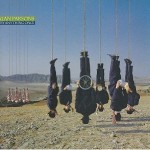
AP: Actually we’re going to rehearse one of the songs that he performed on one of my albums [1993’s Try Anything Once], called “Oh Life (There Must Be More)”. We’re going to do that.
JM: I do have to ask, were you involved with the recent Pink Floyd reissues?
AP: No, I wasn’t.
JM: Not at all?
AP: Not at all, no.
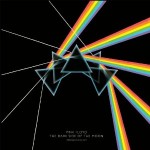
JM: Have you listened to the complete Dark Side of the Moon package?
AP: Yes, when I asked for a copy from the record company they kindly sent it to me. It’s very frustrating that I had nothing to do with it. You know, that’s just the way this business operates.
JM: At least they sent you one [laugh]…
AP: They sent me three actually. But it’s very frustrating, particularly as an engineer that I didn’t get the opportunity to give my blessing to the way it was mastered.
JM: Do you feel they represented the album well?
AP: You know what, I’ve actually only listened to one of the CDs in the car so far [laughs]. But I’m hopeful that it’ll sound good. I’m going to hear the quad mix, hopefully, in the next few days. Did you hear the quad mix?
JM: I haven’t yet, no.
AP: Do you have a quad set-up?
JM: No I don’t, that’s why I haven’t heard it.
AP: You know, the surround/quad version is exciting, like what stereo was to mono in it’s day.
JM: How would you characterize your contributions to Dark Side of the Moon?
AP: I think I was an engineer with production expertise. I certainly wasn’t paid as a producer, that’s for sure. Engineers, for the most part even to this day, are paid salary, not royalties. So Dark Side of the Moon did not make me rich.
JM: Do you have any thoughts on why that album resonated so much with people, and why it became so successful?
AP: It was just well executed. The timing was good. Albums were the rage at the time.

JM: It seems to be somewhat forgotten that you also worked Atom Heart Mother, right?
AP: Yes.
JM: What are your reflections on that album, and how things evolved from that album to Dark Side of the Moon?
AP: Atom Heart Mother was the first time I worked with Pink Floyd, as an engineer. I got a good enough result for them to ask me to engineer Dark Side of the Moon, and I came back to do that.
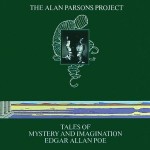
JM: Moving on to your albums, my favorite of the Alan Parsons Project albums is the first one, Tales of Mystery and Imagination.
AP: Mine, too.
JM: Great! Could you give your reflections on that album and how that came together, and why it worked so well?
AP: I think it was just a good piece of timing. It was kind of the first of a new breed of albums, really, a producer putting his name to something as artist, which arguably had not been done until that time. And there was a combination of great talents. I mean, Eric [Woolfson] was a very good songwriter, we worked well together as composers and he was a good businessman as well. He pulled off a great initial deal with the label, and we got some really good musicians and singers.
So good musicians, good songs, good concept – all the ingredients came together at the right time, and we did well with it. It wasn’t the biggest album, of course, but it paved the way for a series of albums which did a whole lot better. But it still is my favorite.
JM: You had a string of classic albums through the rest of the 1970’s and into the 1980’s. What are some of the high points of that time for you, musically or otherwise?
AP: It was just very exciting to be doing so well. Most people come and go overnight. We had basically ten years of success, which was almost unheard of for a lot of people.
Progressive rock or classic rock, whatever you want to call it, it did tend have people that stuck around longer than the people who just made pop songs that came and went. We were very lucky. I’ve always been grateful for the fact that we seemed to have staying power.
Interestingly, right up to a couple of years after the last Alan Parsons Project album, we never played live. The first time we played live was in 1995, I think it was. That was something I just brought about through my own volition, through the people that I made, for want of a better word, my first solo album. It was not really a solo album, it was just an album made with a different team of people, excluding Eric who had gotten involved in a nasty court action and was unable to participate in anything that I was doing. We made an album called Try Anything Once, which was, I think, released in 1994, and we wanted to give it the best possible chance of exposure. So that’s when we started playing live. That was a difficult decision for me, being an engineer/producer, I didn’t necessary have a role in a band, you know? Thankfully I did have some musical experience, and dusted off my guitar and played my three chords.
JM: Do you find it challenging to pull off your music live, because there’s a certain sophistication to it?
AP: I think it would’ve been difficult to do it before 1995, because the music tends to be heavily orchestrated, and it was really only in the mid-90’s that the technology was good enough to give a true impression of the orchestral sound. I mean, it really wasn’t possible up until that time. The only way to have done it would have been to have a real orchestra, and that would’ve made everybody go broke.
JM: When The Alan Parsons Project’s albums were coming out in the late-70’s, in some ways they were out of step with what was going on with punk rock music and so on. And yet it was very successful.
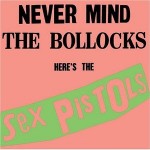
AP: I know that we did hit at the same time as punk. It’s interesting, but I just don’t feel that any of the punk fans would’ve been buying our music. There just was a division between the punk fans and the prog rock fans. But we were right there with the Sex Pistols and The Stranglers, all happening at the same time. We certainly weren’t being played on the same radio stations, that’s for sure.
JM: What do you think about the current climate for progressive rock? Is it viable?
AP: It’s still alive and well, but only on sort of classic rock stations or 70’s and 80’s stations. It’s just a function of how it reaches people. I think the internet has also helped to make a delineation between categories of music.
In the U.K. it’s a little bit different. I know that things have developed a bit, but when I was growing up career-wise in the U.K. there was essentially one radio station. That was Radio One, and they had to appeal to a very, very wide range of pop and rock tastes. They did that by playing rock late at night and pop during the day. It was tough in the U.K.
It’s interesting to note that my popularity in the U.K. was nothing like what it became in America, or actually anywhere else outside of the U.K. We did very well in other countries in Europe, particularly Germany, Spain, Italy, France. In the U.K. we had one small hit at the bottom of the Top 30.
JM: Do you have any perspective on why your music didn’t become so successful in the U.K?
AP: I think it was largely down to radio exposure. We just couldn’t get on the radio. We certainly couldn’t get on TV. You know, it was pre- the video age then. The video fashion came in ’78 or ’79, and MTV came in ’82. In the MTV heyday we did have one video that got a lot of play, it’s a song called “Don’t Answer Me”, which had an animated video which I think won some kind of award for a video in a certain category. I’m not sure. We did get some exposure on MTV, but it was difficult not having an act.
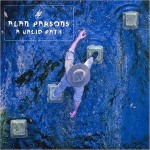
JM: How do you feel that your music and production has evolved over time?
AP: I’ve tried to evolve with the times. The last album I did under my name was an electronica album called A Valid Path. I had the opportunity to work with a number of well-known names in the electronica market, and David Gilmour was gracious enough to appear on it as well. But it wasn’t very well received. I tried to be modern and people didn’t want it. So I think the next thing I do will be a little more in the Parsons tradition.
JM: Recently you pointed out publicly that your song “Eye in the Sky” is quite similar to Lady Antebellum’s “Need You Now”. Whatever happened with that?
AP: I’m sorry to say that I have no comment on that.
JM: Is that for legal reasons or you’ve said what you’ve wanted to say?
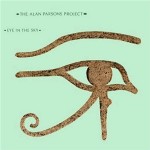
AP: No comment. Read into that what you will. All I’m saying is “no comment”.
JM: I asked you a question after the Steve Miller show, and was curious if you had any further thoughts on it. What advice would you give to an aspiring musician?
AP: And what did I say?
JM: You basically said “don’t give up”.
AP: I think the basis of successful rock music is collaboration. I think too many people try to do it on their own, and sit in front of their laptop and try to be creative, and think that they can do the whole thing themselves. All the best records have come from successful collaborations, co-writing, co-performing. I would encourage musicians to work with others.
This show is for the Boys and Girls Club, and their spin-off, which is Notes For Notes, has a great program of kids working in a studio together downtown. I’m all for that.
JM: It sounds like you have another album either in the works or in the planning stages.
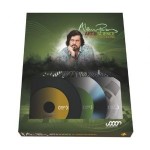
AP: Kind of. We actually have two tracks already done for it, one of which has been released on the internet, called “All Our Yesterdays”. That was recorded as part of a DVD series called The Art And Science Of Sound Recording that has been out a year now. The previous three years I spent making this DVD series. It’s an educational documentary, equivalent to a full TV series. The intention is that it covers every aspect of sound recording, from the eyes and ears of not just me but also other luminaries in the business. [More information on this project is available here].
JM: I did an interview with Todd Rundgren a while back, and he’s quite interested in technology, and of course he’s a producer like you. Part of the discussion was that it has almost become too easy for people to produce music. The thinking is, back when it was more challenging, more thought went into it, and only the truly talented people were trying to do it. Do you have any thoughts on that?
AP: I would agree with that. It is pretty easy. You can just click a mouse at random on some of these applications that are out there right now. You can even make a song on an iPad or an iPhone. I think you’d have to have a lot of good fortune to have a hit with something like that. In the end, good music comes from talent, not from having the right piece of hardware. So I would agree with Todd on that.
JM: Do you want to set the record straight on anything about your music or career?
AP: What an interesting question. I don’t think that I’ve ever been severely misrepresented on anything. There are some websites that say I was born in 1949. I was born in 1948. That’s one small thing.
OK, here’s one often misquoted thing: “I produced Dark Side of the Moon.” People have a habit of thinking that because I’m a producer, I produced that. But I was coming up through the ranks then, so I was very definitely an engineer not a producer. And I have the paychecks to show it. I was paid about a pound an hour at the time.
JM: But it did give you some great exposure, no doubt.
AP: Oh certainly. I’m very grateful for having done it. But it’s forty years ago now.


Discussion
No comments for “Interview: Alan Parsons”